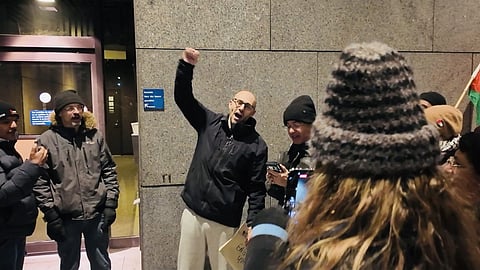Yves Engler (centre) has announced his leadership bid for the NDP.Image courtesy of Yves Engler/X
Opinion
QUESNEL: Activist and NDP candidate tests Canadian tolerance of genocide revision
From Gaza to Rwanda, how ideological bias distorts human rights advocacy


